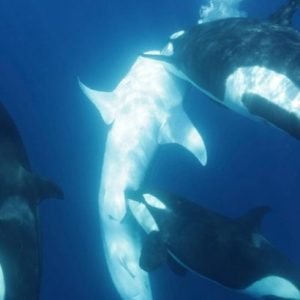
SpaceX has temporarily grounded its Falcon 9 rocket after the vehicle experienced an issue on the Crew-9 astronaut launch for NASA.
Crew-9 lifted off on Saturday (Sept. 28) from Florida’s Cape Canaveral Space Force Station, sending NASA astronaut Nick Hague and Russian cosmonaut Aleksandr Gorbunov aloft aboard the Crew Dragon capsule “Freedom.”
Everything appeared to go well. The Falcon 9’s first stage aced its landing shortly after liftoff, and the rocket’s upper stage deployed Freedom into its proper orbit; the capsule is on track to arrive at the International Space Station (ISS) on Sunday afternoon (Sept. 29) as planned.
After today’s successful launch of Crew-9, Falcon 9’s second stage was disposed in the ocean as planned, but experienced an off-nominal deorbit burn. As a result, the second stage safely landed in the ocean, but outside of the targeted area. We will resume launching after we…September 29, 2024
But the upper stage experienced an issue after completing that job, SpaceX announced early Sunday morning.
“After today’s successful launch of Crew-9, Falcon 9’s second stage was disposed in the ocean as planned, but experienced an off-nominal deorbit burn. As a result, the second stage safely landed in the ocean, but outside of the targeted area. We will resume launching after we better understand root cause,” SpaceX wrote in a post on X.
Related: SpaceX Crew-9 astronaut mission: Live updates
Indeed, a Falcon 9 had been scheduled to launch 20 broadband satellites for the company Eutelsat OneWeb from Vandenberg Space Force Base in California on Sunday night, but that liftoff has been postponed.
The Crew-9 incident was the second Falcon 9 upper-stage issue to crop up in less than three months. On July 11, the rocket experienced a leak of liquid oxygen in its upper stage during the launch of 20 of SpaceX’s Starlink internet satellites. As a result, the spacecraft were deployed too low and ended up being lost.
SpaceX traced that anomaly to a cracked line for a pressure sensor in the upper stage’s liquid-oxygen system. The Falcon 9 returned to flight after just two weeks, acing a mission on July 27.
The rocket was grounded again after a first stage failed to land successfully during an Aug. 28 mission, which went well otherwise. This hiatus was even briefer: The Falcon 9 flew two successful missions just three days later, sticking the landings as well.
Crew-9 is sending Hague and Gorbunov to the ISS for a roughly five-month stay. The duo will return to Earth in February along with NASA astronauts Butch Wilmore and Suni Williams, who arrived at the orbiting lab in June aboard Boeing’s Starliner capsule.
Starliner came home without them earlier this month; the capsule had suffered thruster issues in orbit, and NASA ultimately deemed a crewed return to Earth with the spacecraft too risky. So the agency modified Crew-9’s manifest, taking two astronauts off the launch to make room for Wilmore and Williams on Freedom for the downward leg.







